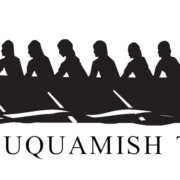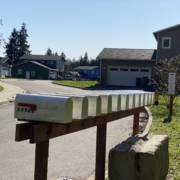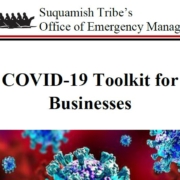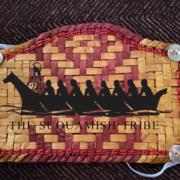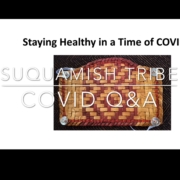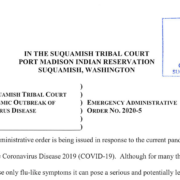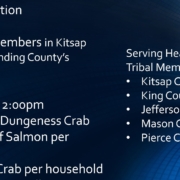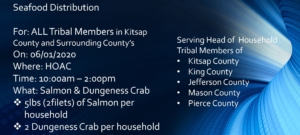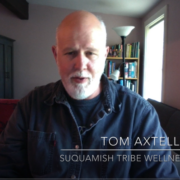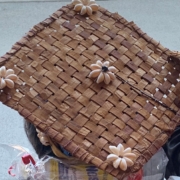Suquamish Tribe files notice of intent to sue King County for ongoing sewage spills
‘The People of the Clear Salt Water’ say Puget Sound community deserves better
SUQUAMISH, WA – The Suquamish Tribe announced its intention to sue King County for repeatedly releasing untreated or improperly treated sewage into the Puget Sound.
In a letter dated July 21, 2020, the Tribe gives King County officials 60 days’ notice of the Tribe’s intent to file a lawsuit for the county’s ongoing violations of the Clean Water Act and its National Pollutant Discharge Elimination System (NPDES) permit.
According to public records, King County discharged hundreds of thousands of gallons of untreated or improperly treated sewage from the West Point Wastewater Treatment Plant, located on the shores of Seattle’s Discovery Park, into Puget Sound in 2018 and 2019. King County is also responsible for a number of NPDES permit violations, discharging effluent wastewater into Puget Sound between 2015 and 2020. These discharges occurred at the West Point Treatment Plant, as well as other treatment facilities, and Combined Sewer Outfalls, on the shores of Centennial Park on Elliot Bay in downtown Seattle, and near Alki Beach in West Seattle.
“The waters of Puget Sound and the entire Salish Sea are the Tribe’s most treasured resource. We are obliged to protect these waters, not only for ourselves but for all who rely on them for healthy seafood, recreation, and cultural practices,” said Suquamish Tribal Chairman Leonard Forsman. “We acknowledge that King County has invested and will invest more to improve their wastewater treatment system, but the Suquamish Tribe and its members are frustrated by the ongoing sewage releases and King County’s other pollution violations in Puget Sound, which continue to harm marine water quality and the Tribe’s ability to exercise reserved treaty rights and engage in cultural activities. We are running out of time and need swifter action. We look forward to discussions with King County, through our long-standing government-to-government relationship, during this 60 day notice period.”
In the July 21 letter, the Suquamish Tribe notified King County that it is responsible for at least 11 significant illegal discharges of untreated sewage from the West Point Treatment plant into the Tribe’s treaty-protected fishing areas, with individual discharge events ranging from 50,000 gallons to 2.1 million gallons.
The Tribe also notified King County that between 2015 and 2020, it violated effluent wastewater discharge permit limits for pH and chlorine at the West Point Treatment Plant, as well as the Elliott West and Alki Combined Sewer Outfalls.
In 2013, King County entered into a Consent Decree with the State of Washington, and the Environmental Protection Agency to address serious and ongoing sewage discharges from its wastewater treatment facilities and combined sewer outfalls that were in violation of the Clean Water Act. Notwithstanding a series of enforcement actions against King County, Clean Water Act violations have continued, including major releases from the West Point Treatment Plant.
The Suquamish Tribe – known as “The People of the Clear Salt Water” in their Southern Lushootseed language – have fished and gathered shellfish in and near the Puget Sound since time immemorial. The waters of Elliott Bay and other waterways into which King County has been discharging untreated sewage make up much of the Tribe’s treaty-protected fishing and shellfish harvesting areas.
“This lawsuit is not just about how these dangerous spills affect the Suquamish Tribe,” said Chairman Forsman. “The entire Puget Sound community deserves clean water. The shellfish, the orca, and all sea life rely on clean water, and all of our children – and children’s children – deserve clean water.”
“This is why the Clean Water Act was created. It’s time for King County to increase their commitment to protecting our shared waters,” said Chairman Forsman.
A copy of the letter of intent is available here.

